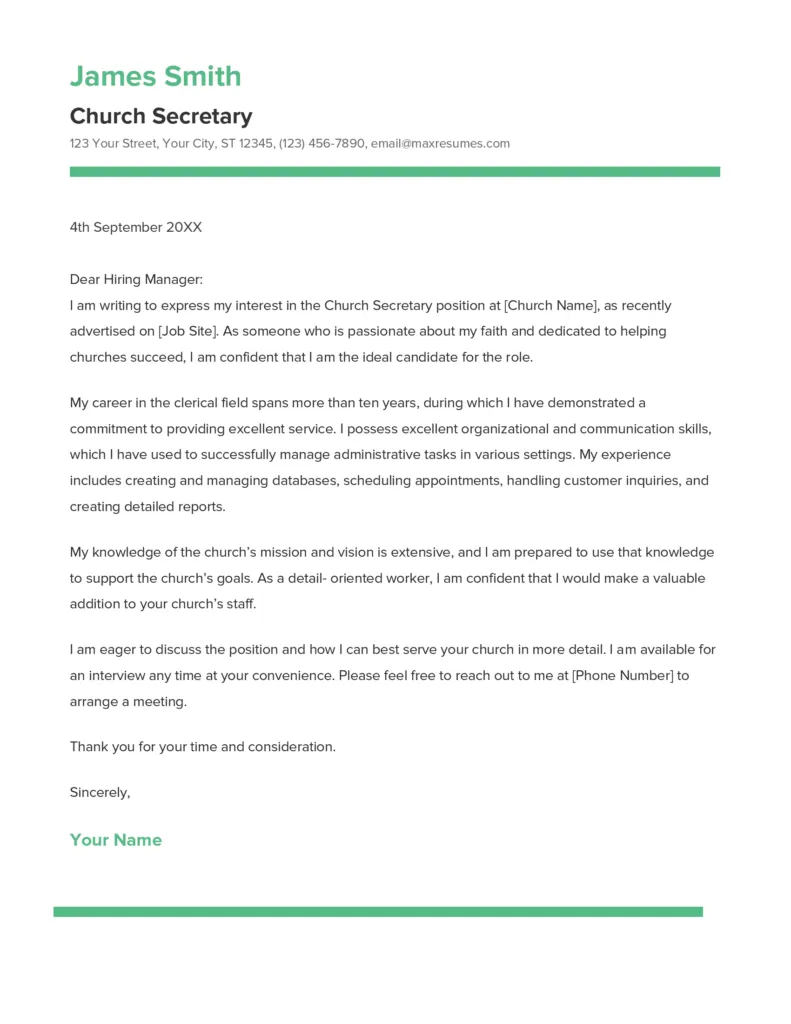Essential Cover Letter Elements for Church Secretary
A well-crafted cover letter is your first chance to make a positive impression and secure an interview for a church secretary position. It’s more than just a formality; it’s a crucial tool to showcase your skills, experience, and, most importantly, your passion for serving the church community. By following a structured approach, you can create a compelling cover letter that highlights your qualifications and sets you apart from other applicants. This guide breaks down the essential elements of a winning church secretary cover letter, ensuring you present yourself in the best possible light and increase your chances of landing your dream job. Remember, the goal is to demonstrate not only your professional abilities but also your alignment with the church’s values and mission.
Contact Information
Start with your contact information at the top of the letter. This should include your full name, address, phone number, and email address. Make sure the email address is professional; avoid using nicknames or informal language. This section is vital for the recipient to easily contact you. Accuracy is paramount, so double-check all details to ensure they are correct. Ensure the formatting is clean and easy to read.
Date
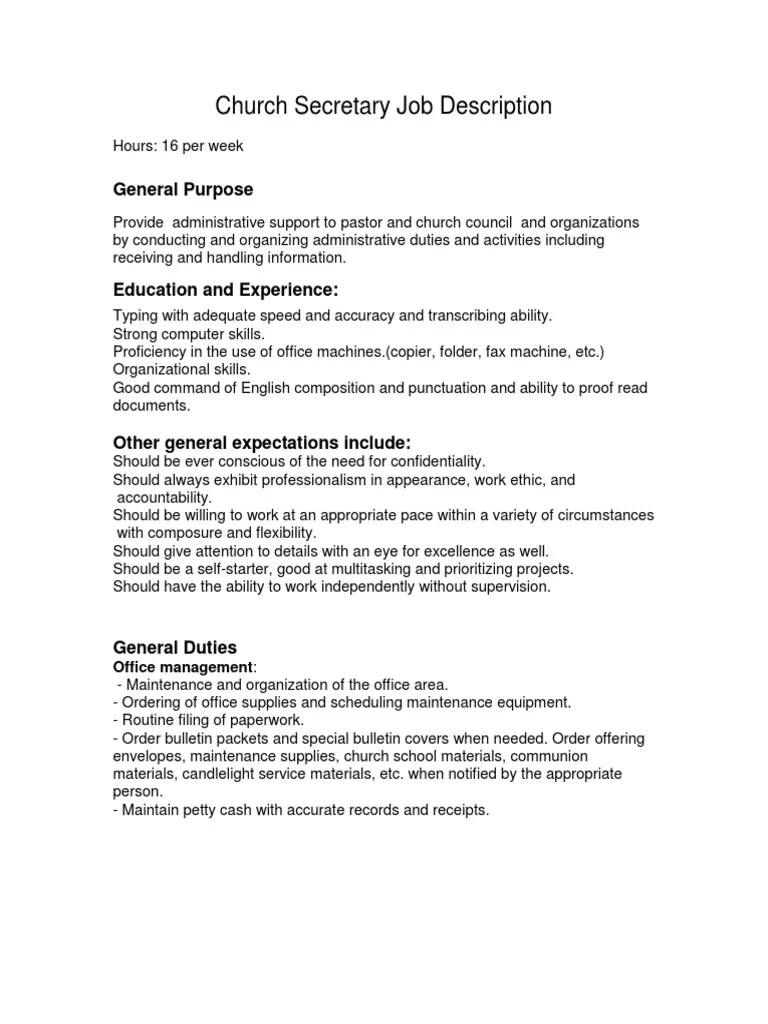
Below your contact information, include the current date. This helps the recipient know when the letter was written and submitted. Standard formatting for the date is the month, day, and year (e.g., July 20, 2024).
Recipient’s Information
Address your letter to the hiring manager or the appropriate person within the church. If possible, find out the name of the individual who will be reviewing applications. If you cannot find a specific name, use a formal title such as “Hiring Committee” or “Pastor.” Include their title, church name, and address. This personalized touch shows that you have taken the time to research the church and its leadership.
Salutation
Use a professional and respectful salutation. If you know the recipient’s name, use “Dear Mr./Ms./Mrs. [Last Name].” If you don’t know the name, a general salutation such as “Dear Hiring Committee” or “To Whom It May Concern” is acceptable. Avoid overly casual greetings.
Body Paragraph 1 Address Your Passion
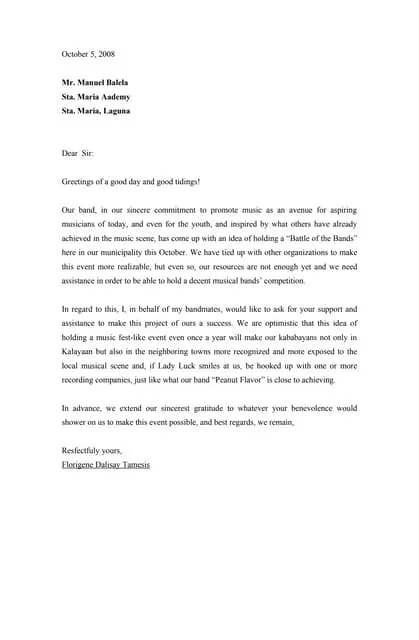
Start your cover letter with a strong opening paragraph that grabs the reader’s attention. Express your genuine interest in the church secretary position and the church itself. Mention what specifically attracted you to the role or the organization. Demonstrate your understanding of the church’s mission and values. This establishes your enthusiasm and connection to the church. Briefly state how your skills and experience align with the job requirements.
Highlight Relevant Experience and Skills
The body of your cover letter should highlight your relevant experience and skills. Focus on the skills and experiences most relevant to the church secretary position, such as administrative tasks, communication, organization, and computer proficiency. Use specific examples to illustrate your abilities. For instance, if you mention organizational skills, describe a situation where you successfully managed multiple projects simultaneously. Quantify your achievements whenever possible (e.g., “Managed and organized church events for over 200 attendees”).
Body Paragraph 2 Show Your Understanding
In this paragraph, you should expand on your understanding of the church’s needs. Describe how you see yourself contributing to the church’s mission and values. This might include experience in customer service, handling sensitive information, or supporting church programs. Tailor your examples to fit the specific needs mentioned in the job description. If the church emphasizes community outreach, highlight your experience in volunteer work or community involvement. Emphasize your commitment to the church’s values.
Demonstrate Knowledge of Church Activities
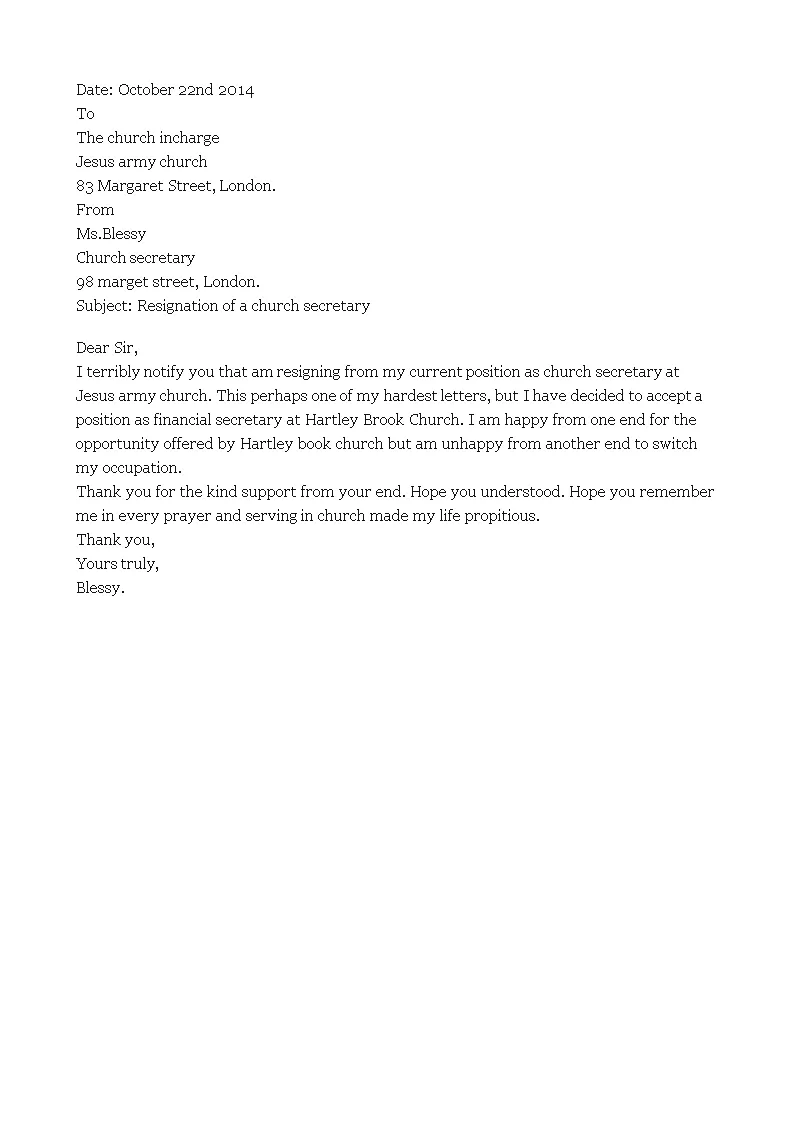
Show that you understand the types of activities a church secretary is typically involved in. Mention any experience you have with tasks like preparing bulletins, managing communications, coordinating volunteers, or supporting church events. If you’ve volunteered or worked in a similar capacity in the past, be sure to provide details. This demonstrates your understanding of the day-to-day responsibilities of the role and your ability to step in and contribute quickly.
Emphasize Skills
Focus on the skills that are most important for a church secretary. These typically include strong communication skills (both written and verbal), organizational abilities, computer proficiency (especially with Microsoft Office or similar software), and the ability to handle sensitive information with discretion. Provide examples of how you have successfully used these skills in previous roles. Remember to tailor your skills to match those mentioned in the job description.
Body Paragraph 3 Call to Action
This is your opportunity to wrap up your letter and request an interview. Briefly reiterate your interest in the position and your belief that you are a good fit for the role. Thank the reader for their time and consideration. Clearly state your availability for an interview and provide your contact information once again. Make it easy for them to reach you.
Express Enthusiasm
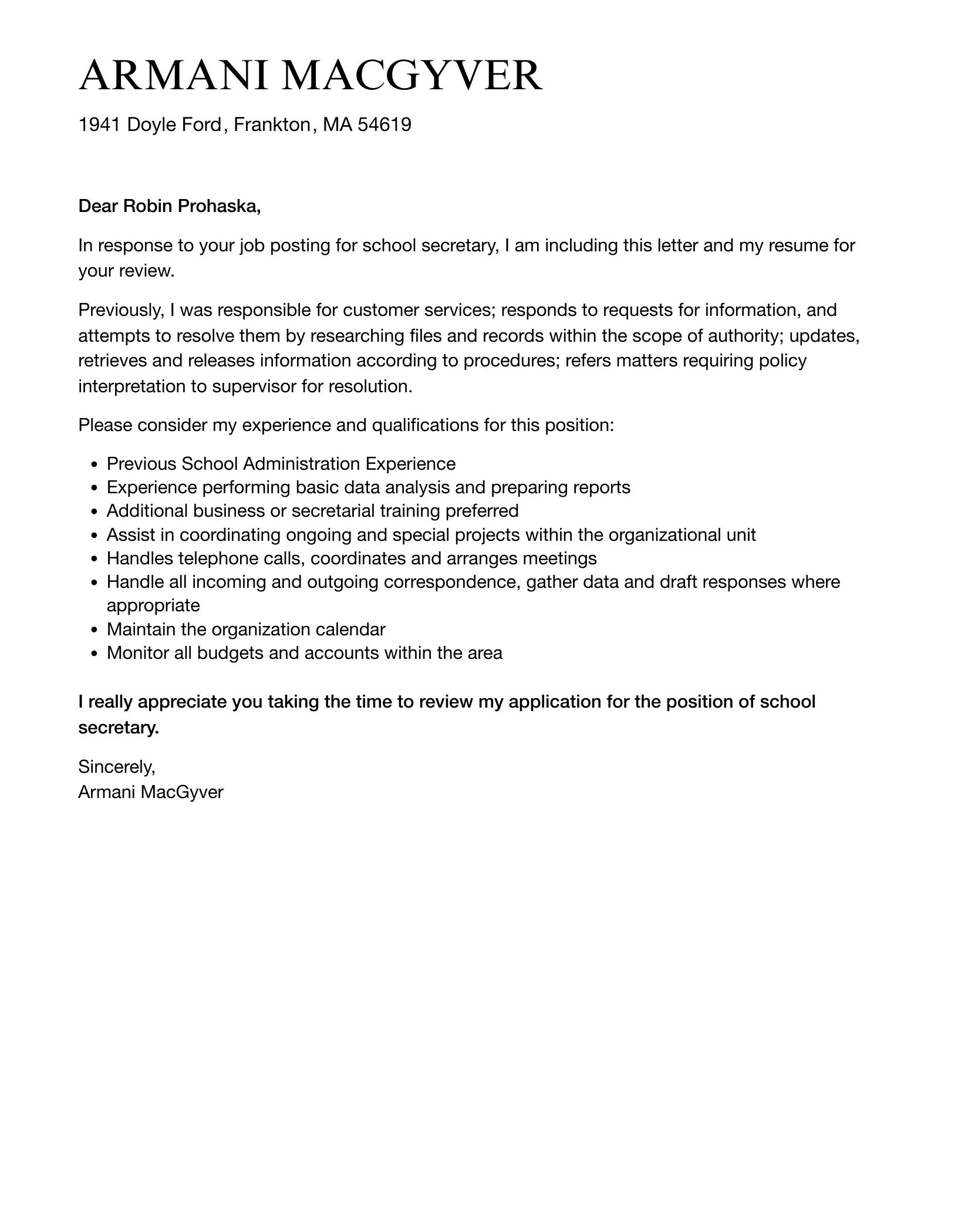
Conclude your cover letter by expressing your enthusiasm for the position and the opportunity to serve the church community. Reinforce your interest in the church’s mission and values. This demonstrates your genuine commitment to the role and the organization. End with a positive and confident tone, expressing your hope to hear from them soon. This reinforces your desire to be part of the team.
Closing and Signature
Use a professional closing such as “Sincerely,” “Respectfully,” or “Best regards.” Leave space for your signature, if you are printing and mailing the letter. If submitting electronically, you can type your full name. Always include your typed name below your signature.
Formatting and Presentation Tips for Your Cover Letter
The appearance of your cover letter is just as important as the content. A well-formatted letter is easy to read and creates a positive first impression. Here are some key formatting tips to follow. Ensure that your letter looks clean, organized, and professional, reflecting the attention to detail that a church secretary role demands. Proofread carefully to avoid errors that could undermine your credibility.
Font and Size
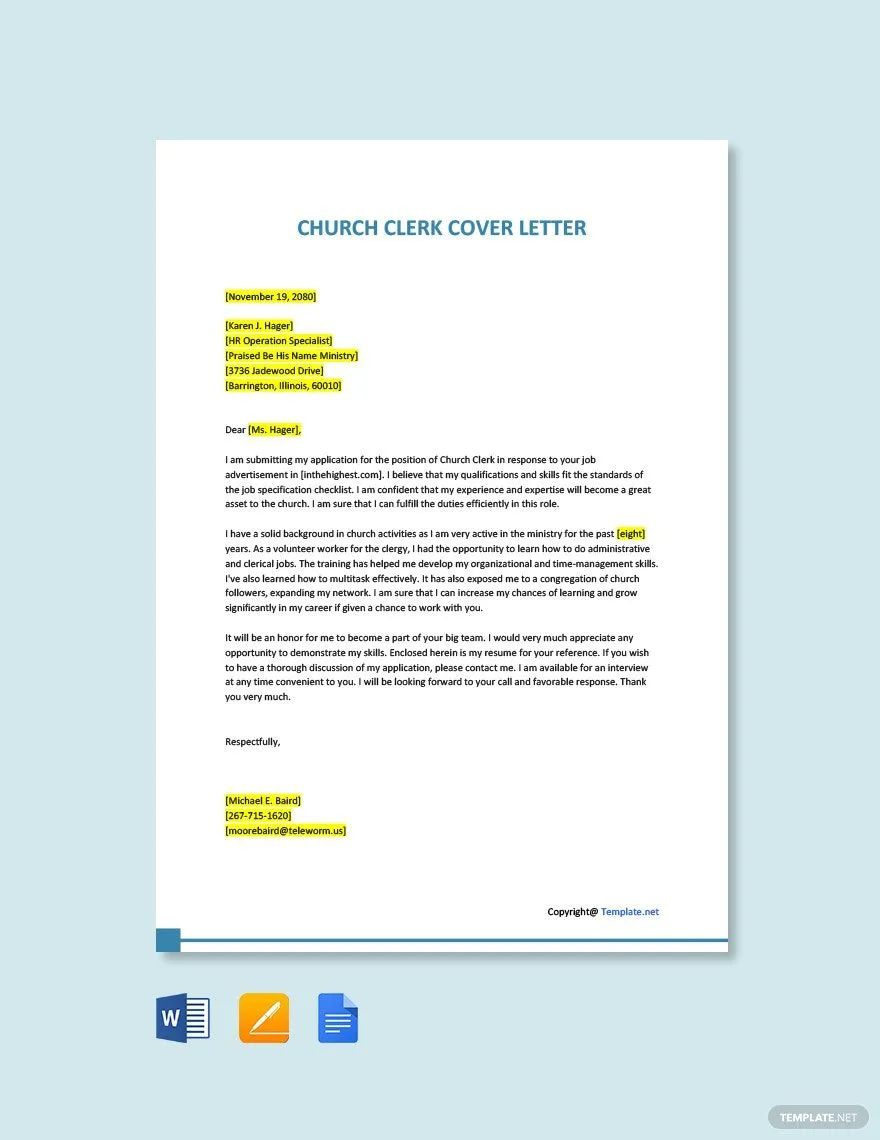
Use a professional and easy-to-read font such as Times New Roman, Arial, or Calibri. Maintain a consistent font throughout the letter. Choose a font size between 10 and 12 points. A slightly larger font size can make the letter easier to read. Ensure the font is clear and professional to enhance readability and maintain a polished appearance.
Margins and Spacing
Use standard 1-inch margins on all sides of the document. This ensures that the text isn’t too cramped. Use single spacing within paragraphs and double spacing between paragraphs. This provides enough visual breathing room. Maintain a consistent layout throughout the document.
Proofreading and Editing
Proofread your cover letter carefully for any grammatical errors, spelling mistakes, or typos. Check for clarity and flow. Have a friend or family member review your letter as a second pair of eyes. A polished and error-free letter shows professionalism and attention to detail. Ensure that your letter is free of any errors. Proofread multiple times to catch any mistakes.
Keywords to Include in Your Cover Letter
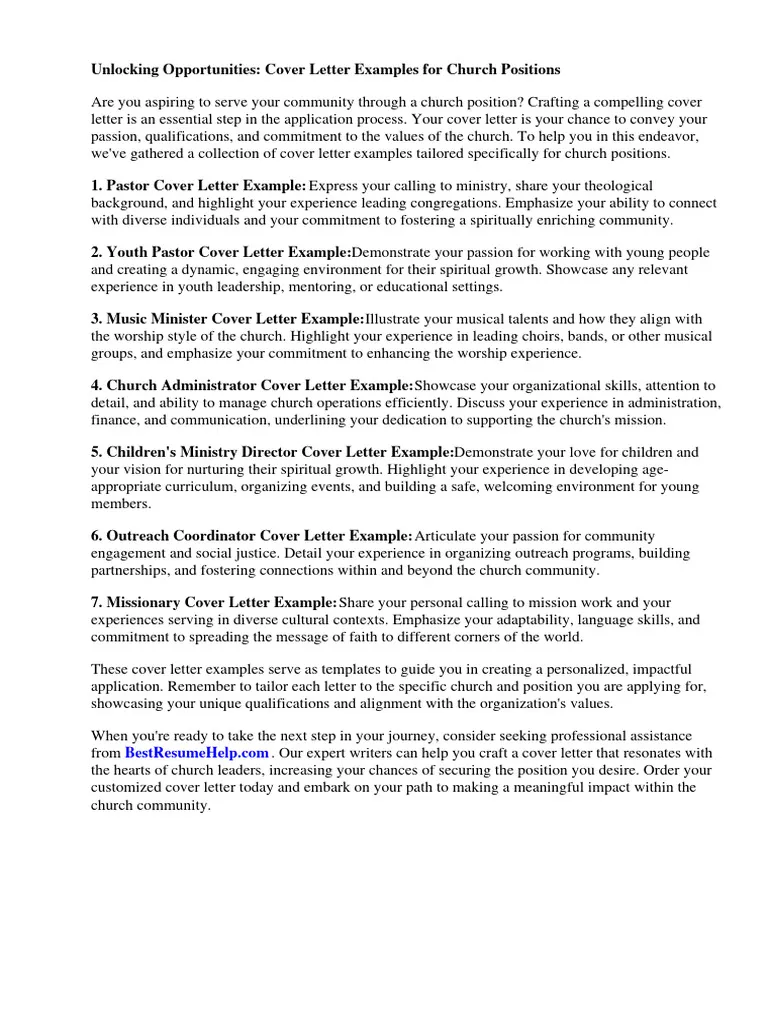
Incorporating relevant keywords can help your cover letter get noticed, especially if the church uses an applicant tracking system (ATS). Include keywords from the job description, such as specific skills, software proficiency, and any unique requirements. Using the right keywords increases the chances of your cover letter being selected for review.
Software Proficiency
Mention any software you’re proficient in, such as Microsoft Office (Word, Excel, PowerPoint), database management tools, and any church-specific software. If the job description mentions specific software, be sure to include it in your list of skills. Demonstrating proficiency with the required software shows that you are ready to hit the ground running.
Communication Skills
Highlight your communication skills, both written and verbal. Mention your experience in drafting emails, preparing correspondence, answering phones, and interacting with the public. Show how you adapt your communication style to different audiences and situations. Emphasize your ability to communicate effectively, both in person and in writing.
Organizational Abilities
Emphasize your organizational skills, such as managing schedules, coordinating events, and maintaining records. Provide examples of how you have successfully managed multiple tasks and met deadlines. Show your capacity to prioritize tasks and organize information efficiently. Mention any experience you have using organizational tools.
